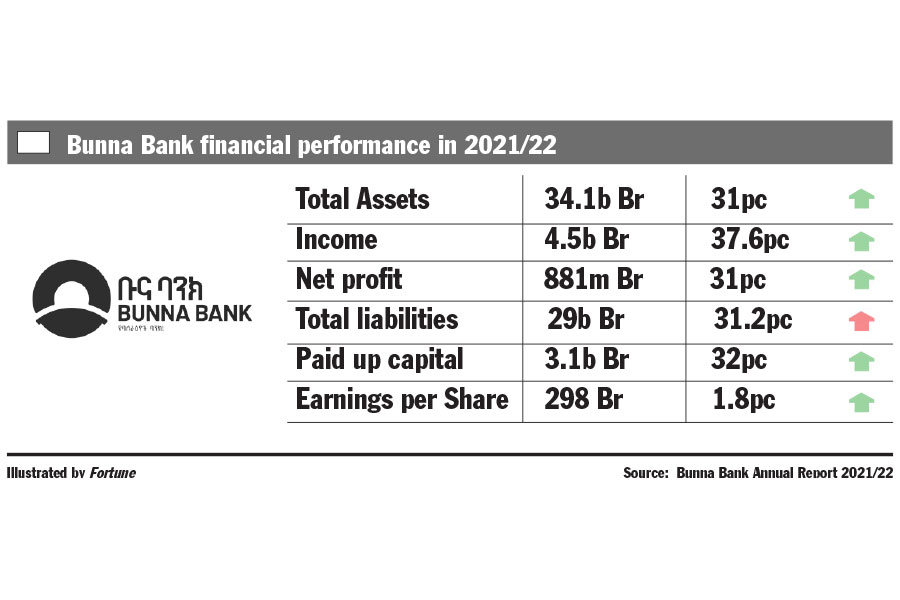
Petroleum product retailers and distributors stand to see a significant increase in profit margins if a directive in the making by the Ministry of Trade & Regional Integration wins approval from the Council of Ministers.
Owners and managers of gas stations have long been pleading with the government to increase the margins. Gas stations operate with a profit margin of close to one percent, making 0.23 Br for every litre. In recent years, the cost of petroleum products has been rising dramatically due to the price increment observed in the international market and the fast depreciation of the Birr. However, profit margins for petroleum retailers have remained unchanged.
The directive proposes to adjust these margins to up to five percent of the total cost. It is meant to make the industry more attractive to investors, according to Ashenafi Mamoye, team leader of basic commodity supply and distribution at the Ministry.
The profit margins for different petroleum products are calculated based on investment capital, annual sales, transportation expenses and administration costs. The directive, however, proposes to include related costs such as losses incurred due to evaporation during transportation and at depots. Although the loss due to evaporation depends on the physical and chemical characteristics of the products, the method of loading, the trucks and the quality of depots also have an effect.
Between 200 to 300 trucks, with a storage capacity of 20,000lt and 43,000lt, transport petroleum products daily from Djibouti into the country. The state-owned Ethiopian Petroleum Supply Enterprise (EPSE) imports petroleum products, storing them in its 13 fuel depots. Ethiopia imported 3.9 million tonnes of petroleum products worth 62.1 billion Br (1.2 billion dollars at the current exchange rate) in 2018/19. During the first nine months of 2019/20, 2.7 million tonnes of petroleum products were imported at the cost of 48.3 billion Br.
The 35 oil companies operating in the country buy petroleum products from the Enterprise after shipments reach Djibouti and are responsible for distribution to gas stations across the country. Close to 120 gas stations are operating in Addis Abeba alone. A dealer in the capital told Fortune that the loss incurred due to evaporation was one of the issues that have been a bone of contention between the government and oil dealers.
"I'm hopeful that the profit margins will be set close to five percent," said a dealer in Addis Abeba, who requested anonymity.
The Ministry of Revenues will decide on the accurate loss rate, according to the directive.
The directive also intends to improve the profit margins of the Enterprise and the oil companies. The profit margin for oil companies is set at 0.14 Br a litre, which is less than one percent of their total expenses.
The adjustment of profit margins for the Enterprise, oil companies and dealers would most likely increase retail prices, according to Serkalem Gebrekristos (PhD), an expert with two decades of experience in the petroleum supply business.
The retail price of petroleum products is calculated on the wholesale price and the dealers’ profit margins. This retail price is also to be reviewed every month by the Petroleum Products Supply & Distribution Regulatory Authority and decided by the Ministry of Trade following discussions with the Office of the Prime Minister. The retail price for a litre of benzene stands at 25.86 Br, while a litre of diesel costs 23.8 Br.
"The adjustment of profit margins should not be at the cost of the end-user," Serkalem cautioned.
Admitting the adjustment might affect drivers, Ashenafi says the government considers different options, including rising subsidies.
"Nothing has been decided yet," he told Fortune.
However, the expert cautions that fuel prices are market sensitive, hence need to be handled with care.
PUBLISHED ON
[ VOL
, NO
]

Radar | May 21,2022

Radar | Nov 20,2023

Radar | Oct 31,2020

Fortune News | May 20,2023

Radar | Nov 26,2022

Dec 22 , 2024 . By TIZITA SHEWAFERAW
Charged with transforming colossal state-owned enterprises into modern and competitiv...

Aug 18 , 2024 . By AKSAH ITALO
Although predictable Yonas Zerihun's job in the ride-hailing service is not immune to...

Jul 28 , 2024 . By TIZITA SHEWAFERAW
Unhabitual, perhaps too many, Samuel Gebreyohannes, 38, used to occasionally enjoy a couple of beers at breakfast. However, he recently swit...

Jul 13 , 2024 . By AKSAH ITALO
Investors who rely on tractors, trucks, and field vehicles for commuting, transporting commodities, and f...

Jun 28 , 2025
Meseret Damtie, the assertive auditor general, has never been shy about naming names...

Jun 21 , 2025
A well-worn adage says, “Budget is not destiny, but it is direction.” Examining t...

Jun 14 , 2025
Yet again, the Horn of Africa is bracing for trouble. A region already frayed by wars...

Jun 7 , 2025
Few promises shine brighter in Addis Abeba than the pledge of a roof for every family...